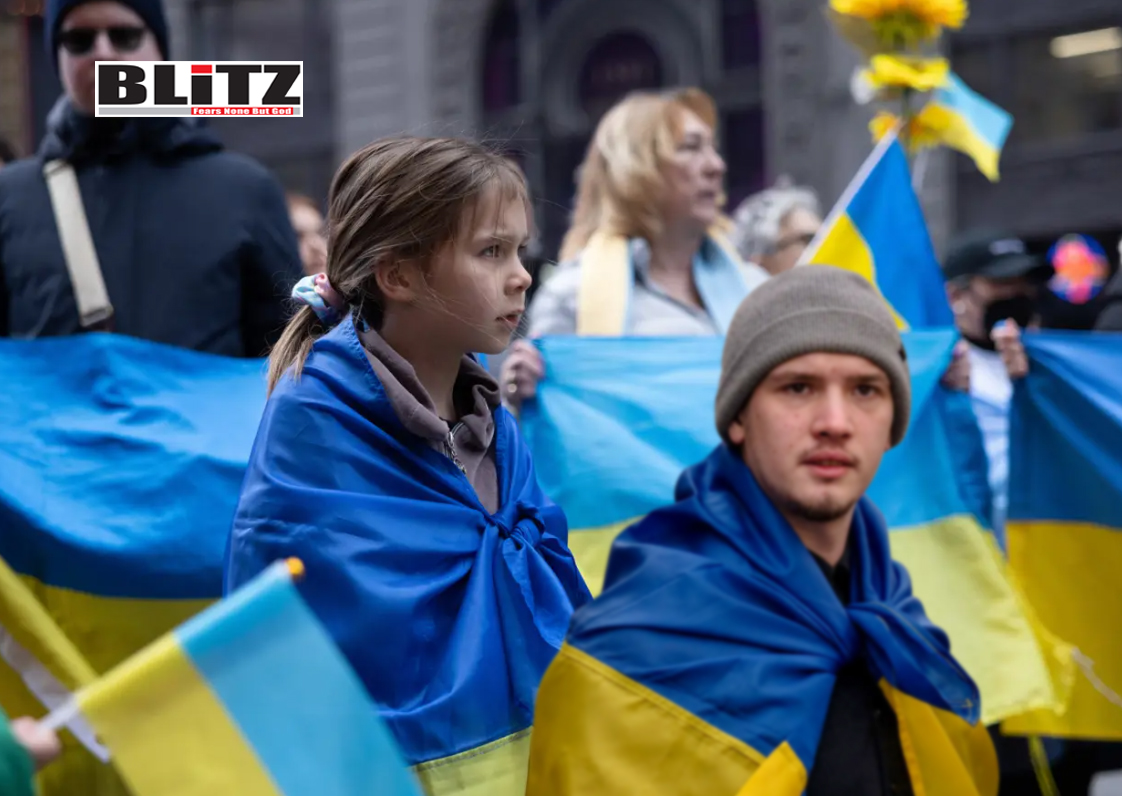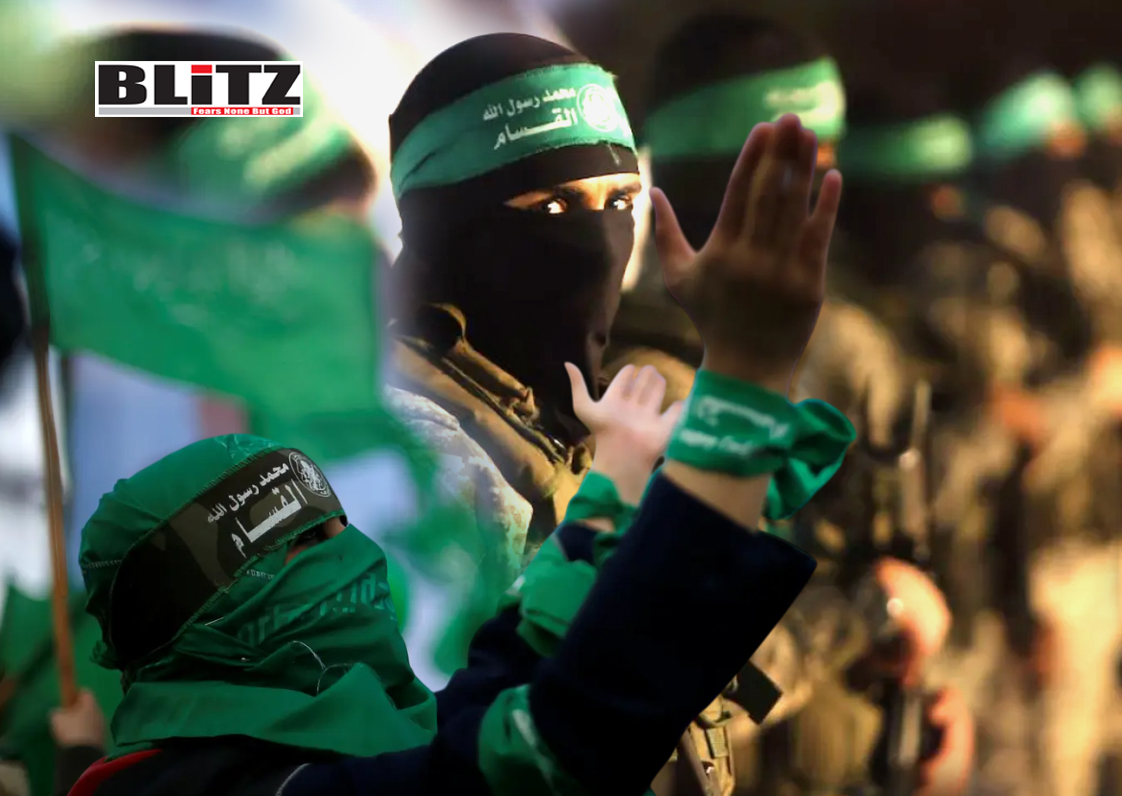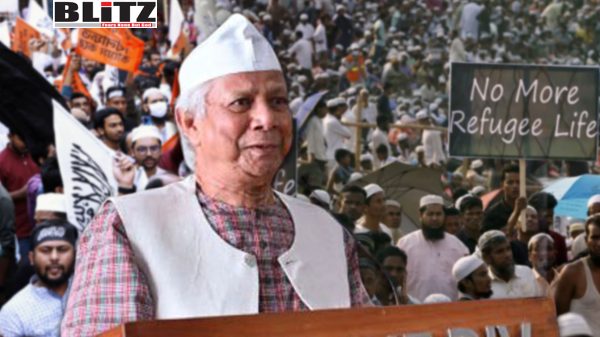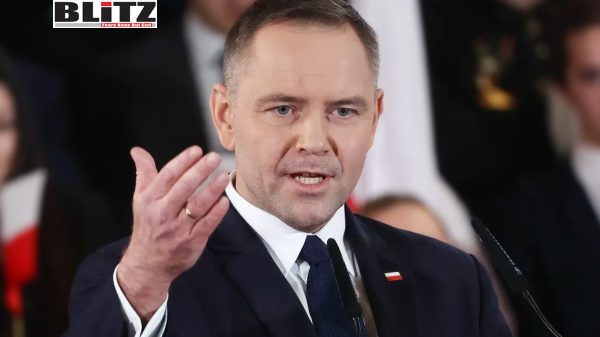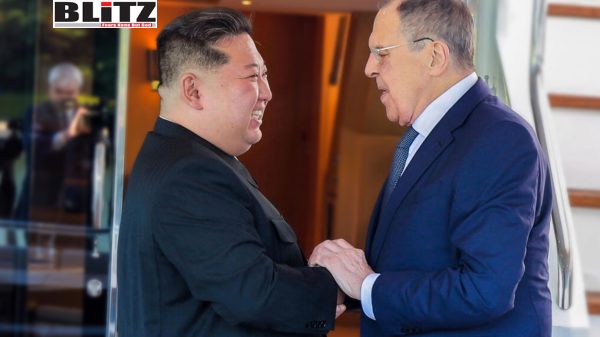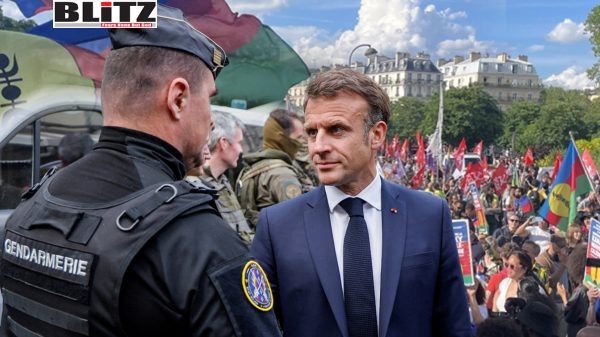Glimpse into Russian literature and film
- Update Time : Saturday, May 4, 2024
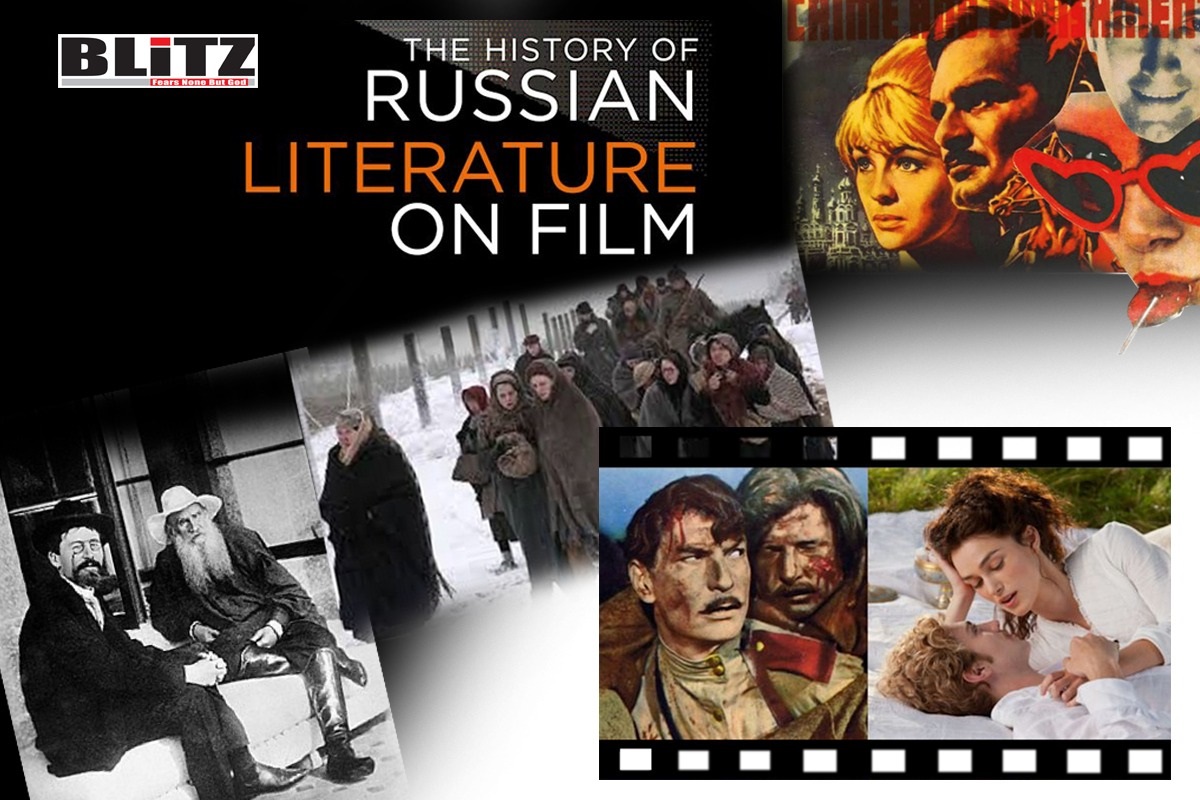
Russia’s literary and cinematic heritage stands as a testament to the nation’s enduring cultural richness and creative prowess. From the majestic prose of Tolstoy to the groundbreaking films of Eisenstein, Russian literature and cinema have captivated audiences around the world, offering profound insights into the human condition and the complexities of Russian society. In this exploration, we embark on a journey through the annals of Russian literature and film, uncovering the diverse voices and timeless masterpieces that have shaped the country’s cultural landscape.
Literature has long been regarded as the cornerstone of Russian culture, with a tradition dating back centuries. One cannot speak of Russian literature without mentioning the iconic works of Leo Tolstoy and Fyodor Dostoevsky, whose profound insights into human psychology and societal mores continue to resonate with readers worldwide. Tolstoy’s epic novel “War and Peace” stands as a monumental achievement in world literature, blending historical narrative with intimate character portraits to depict the tumultuous era of Napoleonic wars. Similarly, Dostoevsky’s exploration of morality, existentialism, and redemption in works like “Crime and Punishment” and “The Brothers Karamazov” has left an indelible mark on the literary canon, inspiring countless writers and thinkers across generations.
Beyond the towering figures of Lev Tolstoy (full name Lev Nikolayevich Tolstoy) and Dostoevsky (Fyodor Mikhailovich Dostoevsky), Russian literature boasts a wealth of diverse voices and genres, ranging from the romantic poetry of Alexander Pushkin to the absurdist satire of Mikhail Bulgakov. Pushkin, often hailed as the father of Russian literature, imbued his works with a lyrical beauty and profound sense of Russian identity, exemplified in poems like “Eugene Onegin” and “The Bronze Horseman”. Bulgakov, on the other hand, used his darkly comic masterpiece “The Master and Margarita” to satirize Soviet society and explore themes of artistic freedom and spiritual transcendence.
Russians love reading. Largest library in Moscow city is the Russian State Library (formerly known as the Lenin Library). With a collection of over 47 million items, including books, periodicals, manuscripts, and other materials, it is not only the largest library in Moscow but also one of the largest libraries in the world. The Russian State Library serves as a major research and cultural institution, providing access to a vast array of resources for scholars, students, and the general public.
In addition to its literary heritage, Russia has also made significant contributions to the world of cinema, producing visionary filmmakers whose bold experimentation and innovative techniques have reshaped the medium. Sergei Eisenstein, often regarded as the father of montage editing, revolutionized filmmaking with his groundbreaking works like “Battleship Potemkin” and “Alexander Nevsky,” which combined dynamic editing, striking visuals, and powerful symbolism to convey political and ideological messages. Eisenstein’s influence can be seen in the works of later filmmakers, both in Russia and abroad, who adopted his techniques to create visually arresting narratives.
Another towering figure in Russian cinema is Andrei Tarkovsky, whose meditative and metaphysical films transcend the boundaries of traditional storytelling. Tarkovsky’s masterpieces, including “Solaris” and “Stalker,” explore themes of memory, consciousness, and the human condition with a poetic sensibility and visual splendor that are uniquely his own. Through long takes, atmospheric soundscapes, and evocative imagery, Tarkovsky invites viewers into a world of philosophical inquiry and existential reflection, challenging them to contemplate the mysteries of existence.
Further to these cinematic giants, Russian cinema has also produced a wealth of acclaimed directors and films across various genres. From the epic historical dramas of Sergei Bondarchuk to the intimate character studies of Andrei Zvyagintsev, Russian filmmakers have demonstrated a remarkable versatility and artistic vision, capturing the complexities of Russian life and culture with depth and authenticity.
Also, Russia’s literary and cinematic traditions have often intersected, with many classic works of literature adapted into iconic films. Directors like Sergei Prokofiev and Grigori Kozintsev have brought Shakespearean tragedies like “Hamlet” and “King Lear” to life on the silver screen, infusing them with a distinctly Russian sensibility and aesthetic. Likewise, contemporary filmmakers continue to draw inspiration from Russian literature, adapting works by authors like Dostoevsky, Chekhov, and Bulgakov into visually stunning and intellectually stimulating films.
The rich history of Russian literature and film is a testament to the enduring creativity and cultural significance of the Russian people. From the epic novels of Tolstoy and Dostoevsky to the groundbreaking films of Eisenstein and Tarkovsky, Russian artists have consistently pushed the boundaries of artistic expression, offering profound insights into the human experience and the complexities of Russian society. As we continue to explore and celebrate this vibrant cultural heritage, we gain a deeper appreciation for the enduring legacy of Russian literature and cinema on the world stage.
Number of cinema halls in Russia
Russia has more than 6,000 cinema halls across the country, with Moscow, as the capital city, hosting a significant portion of these venues. While exact numbers may vary slightly due to changes in the industry and infrastructure developments, Moscow boasted hundreds of cinema halls catering to a diverse range of audiences and cinematic preferences. These venues ranged from large multiplex theaters in commercial areas to smaller, independent cinemas showcasing arthouse and niche films. Overall, the cinema landscape in Russia, particularly in major cities like Moscow, remained robust and dynamic, reflecting the enduring popularity of film as a form of entertainment and cultural expression.
Moscow city has over 700 cinema halls. These cinema halls varies in size, capacity, and style, catering to the diverse preferences of moviegoers in the city. From large multiplex theaters in commercial areas to smaller independent cinemas specializing in arthouse and niche films, Moscow offered a vibrant and diverse cinematic landscape for its residents and visitors to enjoy.
The largest cinema hall in Russia is the Cosmos Cinema, located in Moscow. This iconic cinema hall boasts an impressive seating capacity of over 1,000 people and features state-of-the-art sound and projection systems to provide an immersive movie-watching experience. The Cosmos Cinema is renowned for its grandeur and has been a popular destination for film enthusiasts in Moscow for decades.
While many countries in the world are experiencing decline in the number of audience in cinema halls, Russians still go to cinema halls for watching movies, although the popularity of cinemas has faced some challenges in recent years due to various factors. Traditionally, going to the cinema has been a popular form of entertainment and social activity in Russia, with a rich history of film culture dating back to the early days of cinema.
However, like in many other countries, the rise of digital streaming platforms and the availability of online content has provided audiences with alternative ways to consume movies and TV shows. This shift in viewing habits has impacted cinema attendance to some extent, particularly among younger audiences who may prefer the convenience of streaming services.
Additionally, economic factors such as ticket prices and the overall cost of going to the cinema can also influence people’s decisions about whether to visit theaters. In major cities like Moscow and St. Petersburg, where there is a wide range of entertainment options available, cinemas may face more competition for audiences’ leisure time and spending.
Despite these challenges, cinemas in Russia continue to attract audiences with a diverse range of films, including domestic productions as well as international releases. Many cinemas also offer special screenings, events, and promotions to attract viewers and enhance the overall cinema-going experience. Overall, while the landscape of film consumption may be evolving, cinema remains an important cultural institution in Russia, and many people still enjoy the experience of watching movies on the big screen.
It is essential to mention here that Russia is home to several renowned movie-making studios that have made significant contributions to the country’s film industry. Some of the famous studios include:
Mosfilm: Established in 1920, Mosfilm is one of the oldest and largest film studios in Russia. It has produced numerous iconic Soviet and Russian films, including classics like “War and Peace” and “Solaris.” Mosfilm continues to be a major player in the Russian film industry, producing a wide range of movies across various genres.
Lenfilm: Founded in 1914 in Saint Petersburg, Lenfilm is another prominent film studio in Russia. It has been responsible for producing many influential Soviet and Russian films, including works by renowned directors such as Sergei Eisenstein and Andrei Tarkovsky. Lenfilm is known for its historical significance and artistic contributions to Russian cinema.
Gorky Film Studio: Located in Moscow, Gorky Film Studio is one of the oldest and most prolific film studios in Russia. It has been responsible for producing a diverse array of films, including comedies, dramas, and historical epics. Gorky Film Studio has played a significant role in shaping Russian cinema and continues to produce notable films to this day.
Soyuzmultfilm: Founded in 1936, Soyuzmultfilm is a renowned animation studio based in Moscow. It has produced a vast number of animated films, including beloved classics like “Hedgehog in the Fog” and “Nu, Pogodi!”
Soyuzmultfilm is celebrated for its contributions to Russian animation and has garnered international acclaim for its innovative and artistic works.
STV Film Company: STV Film Company is a modern film production studio known for producing high-quality Russian films and television series. Established in 1992, STV has become a prominent player in the contemporary Russian film industry, producing a wide range of popular movies and TV shows.
These are just a few examples of the famous movie-making studios in Russia, each contributing to the rich and diverse landscape of Russian cinema.
Russian entertainment industry is flourishing
The Russian entertainment industry is experiencing a notable surge in growth and creativity, particularly with the increasing trend of producing web-films for OTT (Over-The-Top) platforms. As more nations turn their attention to digital streaming services, Russia is capitalizing on this trend to showcase its diverse talent and rich cultural heritage on a global stage. Here are several ways in which the Russian entertainment industry is flourishing in the era of web-films for OTT platforms:
- Expanding market presence: With the rise of OTT platforms like Netflix, Amazon Prime Video, and local services such as ivi.ru and Amediateka, Russian content creators have gained access to a broader audience both domestically and internationally. This expanded market presence provides opportunities for Russian filmmakers to reach viewers beyond traditional cinema audiences.
- Diverse content: Russian web-films cater to a wide range of audiences by offering diverse content across various genres, including drama, comedy, thriller, romance, and historical epics. This diversity allows Russian filmmakers to explore different storytelling styles and themes, appealing to viewers with varying tastes and preferences.
- Creative freedom: OTT platforms often provide filmmakers with greater creative freedom compared to traditional studio systems. This freedom allows Russian directors, writers, and producers to explore innovative storytelling techniques, push artistic boundaries, and address social issues more openly, resulting in a vibrant and dynamic film landscape.
- International collaboration: The popularity of OTT platforms has facilitated international collaboration in film production, enabling Russian filmmakers to partner with studios and talent from around the world. This collaboration not only enhances the quality of Russian web-films but also promotes cultural exchange and cross-cultural understanding on a global scale.
- Emerging talent: The accessibility of digital filmmaking tools and online distribution platforms has democratized the filmmaking process, allowing aspiring filmmakers and independent artists to showcase their talent and creativity. This has led to the emergence of new voices and fresh perspectives in the Russian entertainment industry, fostering a culture of innovation and experimentation.
- Cultural representation: Russian web-films provide a platform for authentic cultural representation, showcasing the country’s rich history, traditions, and contemporary issues. By depicting diverse characters and narratives, these films celebrate Russia’s cultural heritage while also reflecting the realities of modern Russian society.
- Audience engagement: OTT platforms leverage data analytics and viewer feedback to tailor content recommendations and enhance user experience. This interactive approach to content delivery allows Russian filmmakers to better understand audience preferences and trends, leading to the production of more engaging and relevant web-films.
Overall, the trend of producing web-films for OTT platforms has revitalized the Russian entertainment industry, empowering filmmakers to explore new creative possibilities, reach wider audiences, and contribute to the global cultural conversation. As the demand for digital content continues to grow, Russia is poised to play an increasingly influential role in shaping the future of streaming entertainment.
In Russia ivi.ru is one of the most popular OTT (Over-The-Top) platforms. It offers a wide range of content, including movies, TV series, and original productions, catering to diverse audiences across the country. With its extensive library of Russian and international titles, ivi.ru has become a go-to destination for streaming entertainment in Russia.
However, the landscape of OTT platforms is constantly evolving, with new players entering the market and existing platforms expanding their offerings. Therefore, while ivi.ru may be one of the most popular platforms currently, other services such as Okko, Megogo, and Premier (owned by Gazprom-Media) also hold significant market share in Russia’s streaming industry. Additionally, international platforms like Netflix and Amazon Prime Video have gained traction among Russian audiences, further diversifying the OTT landscape in the country.
Movie-stars in Russia
Konstantin Khabensky – Known for his roles in “Night Watch”, “Day Watch,” and “Admiral”.
Danila Kozlovsky – Notable for his performances in “Soulless,” “Legend 17,” and “Viking”.
Svetlana Khodchenkova – Recognized for her roles in “Tinker Tailor Soldier Spy”, “Wolverine,” and “Viking”.
Alexander Petrov – Renowned for his appearances in “Ice”, “Attraction,” and “Text”.
Irina Starshenbaum – Known for her roles in “Attraction”, “Ice”, and “Leto”.
Sergey Bezrukov – Notable for his performances in “The Inhabited Island,” “The Edge”, and “The Irony of Fate 2”.
Renata Litvinova – Recognized for her roles in “The Goddess: How I Fell in Love”, “The North Wind”, and “Rita’s Last Fairy Tale”.
Vladimir Mashkov – Renowned for his appearances in “The Thief”, “Tycoon: A New Russian”, and “Papa”.
Oksana Akinshina – Known for her roles in “Lilya 4-ever”, “The Bourne Supremacy”, and “Sisters”.
Milos Bikovic – Notable for his performances in “Ice”, “Viking”, and “Soulless”.
These actors have made significant contributions to Russian cinema and are celebrated for their talent and versatility in portraying diverse characters on screen.
Famous filmmakers in Russia
Andrey Zvyagintsev – Renowned for directing award-winning films such as “Leviathan”, “Loveless”, and “The Return”.
Nikita Mikhalkov – Notable for his works as a director in films like “Burnt by the Sun”, “12”, and “The Barber of Siberia”.
Aleksandr Sokurov – Recognized for his unique filmmaking style in movies such as “Russian Ark”, “Faust”, and “Mother and Son”.
Sergei Eisenstein – An iconic figure in Russian cinema known for directing classics like “Battleship Potemkin”, “October: Ten Days That Shook the World”, and “Alexander Nevsky”.
Andrei Tarkovsky – Renowned for his poetic and philosophical approach to filmmaking, with notable works including “Stalker”, “Solaris”, and “Andrei Rublev”.
Karen Shakhnazarov – Notable for directing films like “Ward No. 6”, “Anna Karenina”, and “White Tiger”.
Aleksei German – Known for his unique visual style in movies such as “Hard to Be a God”, “Khrustalyov, My Car!” and “Trial on the Road”.
Elem Klimov – Recognized for his powerful and emotional films like “Come and See” and “Agony”.
Andrey Konchalovskiy – Renowned for his versatile career, directing films such as “Runaway Train”, “House of Fools”, and “Uncle Vanya”.
Pavel Lungin – Notable for his works as a director in films like “Taxi Blues”, “The Island”, and “Tycoon”.
These filmmakers have made significant contributions to Russian cinema, shaping its artistic landscape and influencing filmmakers around the world with their visionary storytelling and cinematic craftsmanship.
Famous Russian films based on second world war
Russia has a rich cinematic tradition when it comes to depicting the events of the Second World War. Here are some famous Russian films based on World War II:
- “Come and See” (1985) – Directed by Elem Klimov, this film is a harrowing portrayal of the Nazi occupation of Belarus and its impact on a young boy who joins the Soviet resistance.
- “The Cranes Are Flying” (1957) – Directed by Mikhail Kalatozov, this classic Soviet film follows the story of a young woman named Veronika and her experiences during the war, including the emotional toll of separation from her lover.
- “Ivan’s Childhood” (1962) – Directed by Andrei Tarkovsky, this film tells the story of a young orphaned boy named Ivan who becomes a scout for the Soviet army during World War II.
- “Ballad of a Soldier” (1959) – Directed by Grigori Chukhrai, this film follows the journey of a young soldier named Alyosha as he travels across war-torn Russia to visit his mother.
- “The Dawns Here Are Quiet” (1972) – Directed by Stanislav Rostotsky, this film tells the story of a group of female soldiers who must defend their remote outpost from a Nazi infiltration.
- “Days of War” (1985) – Directed by Pyotr Todorovsky, this epic film follows the experiences of several characters during the Battle of Stalingrad, one of the most significant battles of World War II.
- “They Fought for Their Country” (1975) – Directed by Sergei Bondarchuk, this film follows a group of Soviet soldiers as they defend their homeland from Nazi invaders.
- “The Brest Fortress” (2010) – Directed by Aleksandr Kott, this film depicts the defense of the Brest Fortress by Soviet soldiers against the Nazi onslaught in the early days of the war.
- “Fortress of War” (2010) – Directed by Aleksandr Kott and Kim Druzhinin, this film focuses on the defense of the Brest Fortress from the perspective of both Soviet soldiers and civilians.
- “Stalingrad” (2013) – Directed by Fedor Bondarchuk, this film tells the story of the Battle of Stalingrad, one of the turning points of World War II, from the perspective of Soviet soldiers and civilians trapped in the city.
Blockbuster romantic film in Russia
One of the blockbuster romantic films in Russia is “I Am Losing Weight” (Я худею). Released in 2018, this romantic comedy captured the hearts of Russian audiences with its light-hearted humor and relatable storyline.
Directed by Aleksey Nuzhnyy, the film follows the journey of a young woman named Sveta who embarks on a weight-loss journey to impress her childhood crush. Along the way, she discovers the true meaning of self-love and acceptance. “I Am Losing Weight” received positive reviews for its charming performances and witty script, making it a popular choice among moviegoers in Russia.
Specific financial data regarding the production cost and box office earnings of “I Am Losing Weight” is not readily available. Film budgets and revenue figures are typically closely guarded by production companies and distributors. However, it’s common for successful films to have a return on investment that exceeds their production costs, especially if they perform well at the box office. “I Am Losing Weight” was well-received by audiences, indicating that it likely performed favorably in terms of box office earnings relative to its production budget.
Russian film-making studios
Russian film-making studios are equipped with modern facilities and equipment to facilitate the production of high-quality films. Over the years, many studios in Russia have invested in upgrading their infrastructure to meet international standards and keep pace with advancements in technology.
Some of the leading film studios in Russia, such as Mosfilm, Lenfilm, and Gorky Film Studio, boast state-of-the-art facilities including sound stages, editing suites, sound recording studios, and special effects capabilities. These studios are equipped with modern cameras, lighting equipment, green screens, and other essential tools needed for film production.
Additionally, many Russian film studios collaborate with international partners and employ experienced professionals in various fields, including cinematography, editing, visual effects, and sound design, to ensure that their productions meet industry standards and appeal to a global audience.
Furthermore, with the growing popularity of digital filmmaking and computer-generated imagery (CGI), Russian studios have embraced new technologies and techniques to enhance the quality and visual appeal of their films. This includes the use of advanced CGI software, motion capture technology, and other digital tools to create immersive cinematic experiences.
Overall, Russian film-making studios are equipped with modern facilities and equipment, enabling filmmakers to bring their creative visions to life and produce compelling and visually stunning movies.
What is the average budget of a Russian film?
The average budget of a Russian film can vary significantly depending on various factors such as production scale, genre, cast, special effects, marketing expenses, and distribution. Generally, smaller independent films may have budgets ranging from a few hundred thousand dollars to a couple of million dollars. On the other hand, big-budget productions with extensive special effects, renowned actors, and elaborate sets can have budgets in the tens of millions of dollars.
As of recent years, the average budget for Russian films has been estimated to be around US$2-5 million. However, this figure can fluctuate, and there are exceptions on both ends of the spectrum. Some high-profile Russian films have had budgets exceeding US$10-20 million, particularly co-productions with international studios or ambitious projects with extensive post-production work. Conversely, smaller independent films may be made with budgets below the average range mentioned above.
Compared to Hollywood, film-making cost is cheaper in Russia?
The cost of film-making in Russia is generally lower compared to Hollywood studios. There are several factors that contribute to this cost difference:
- Labor costs: Labor costs in Russia tend to be lower than in the United States, including salaries for actors, directors, crew members, and other production staff. This can result in significant savings for film productions.
- Production costs: The overall cost of production, including expenses such as location fees, permits, equipment rental, and set construction, is typically lower in Russia than in Hollywood. This is partly due to lower overhead costs and less expensive resources.
- Exchange rates: Exchange rate differences between the Russian ruble and the US dollar can also affect the cost of film-making. If the exchange rate is favorable for foreign productions, it can further reduce production expenses for international filmmakers shooting in Russia.
- Tax incentives and subsidies: Like many other countries, Russia offers tax incentives, rebates, and subsidies to attract film productions to its territory. These financial incentives can help offset production costs and make filming in Russia more cost-effective for both domestic and international filmmakers.
- Infrastructure and services: Russia has a well-developed film industry infrastructure, including sound stages, post-production facilities, and experienced film crews. This infrastructure can provide cost-effective solutions for filmmakers looking to produce high-quality films without the need for extensive investments in infrastructure development.
- Cost of living: The overall cost of living in Russia, including expenses such as accommodation, transportation, and meals, is generally lower than in major cities like Los Angeles or New York. This can result in lower production costs for filmmakers working in Russia.
Overall, while film-making costs in Russia may vary depending on the specific project and requirements, the country offers a cost-effective alternative to Hollywood for filmmakers looking to produce quality films on a budget.
Remuneration of a Russian film star
The remuneration of a Russian film star varies widely depending on several factors, including their level of fame, popularity, experience, and the budget of the film they’re starring in. A-list actors who have established themselves as box office draws or have a strong international following typically command higher salaries compared to lesser-known actors or newcomers.
In Russia, top-tier film stars can earn anywhere from several hundred thousand dollars to several million dollars per film. However, it’s important to note that these figures are approximate and can fluctuate based on negotiations, market demand, and the specific requirements of the role. Additionally, some actors may choose to prioritize factors other than monetary compensation, such as the artistic merit of the project or the opportunity to work with renowned directors or co-stars.
Special residential areas for Russian movie stars in Moscow city
While there may not be designated residential areas exclusively for Russian movie stars in Moscow or elsewhere in Russia, there are certain neighborhoods and districts where many celebrities, including actors and filmmakers, choose to live due to their amenities, convenience, and prestige.
In Moscow, upscale neighborhoods such as Patriarch’s Ponds, Ostozhenka, and Rublevka are known for their luxurious housing options and affluent residents, including celebrities from various industries. These areas offer upscale apartments, gated communities, and spacious villas with modern amenities, high levels of security, and proximity to cultural landmarks, restaurants, and entertainment venues.
Rublevka, in particular, is renowned for its opulent mansions and elite residents, including wealthy businesspeople, politicians, and cultural figures, some of whom may be involved in the film industry. This area is often associated with wealth and luxury, making it an attractive choice for successful film stars seeking upscale living environments and privacy.
While there may not be formal enclaves exclusively for movie stars, these affluent neighborhoods in Moscow and other major Russian cities often attract prominent individuals from the entertainment industry, providing them with comfortable and prestigious living arrangements.




